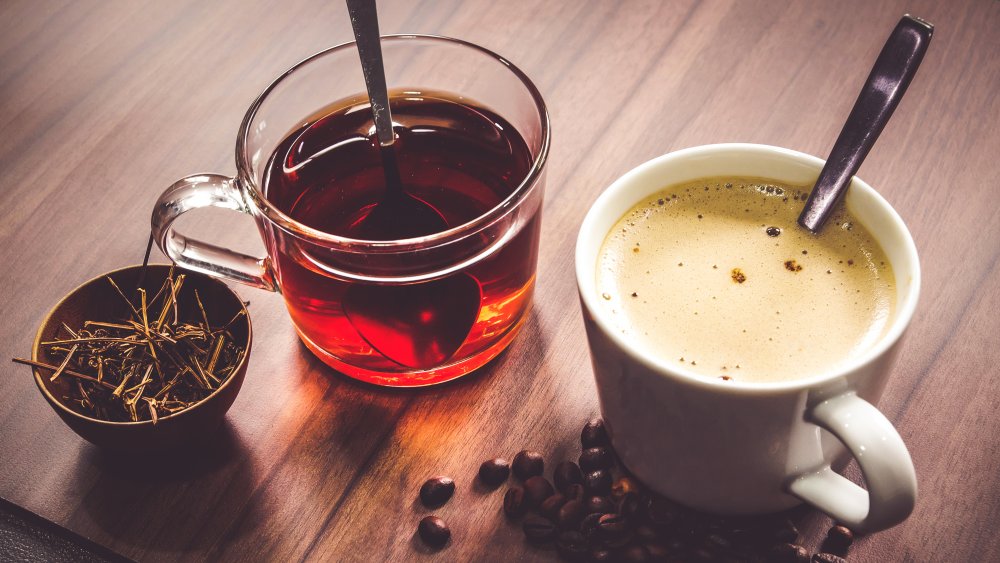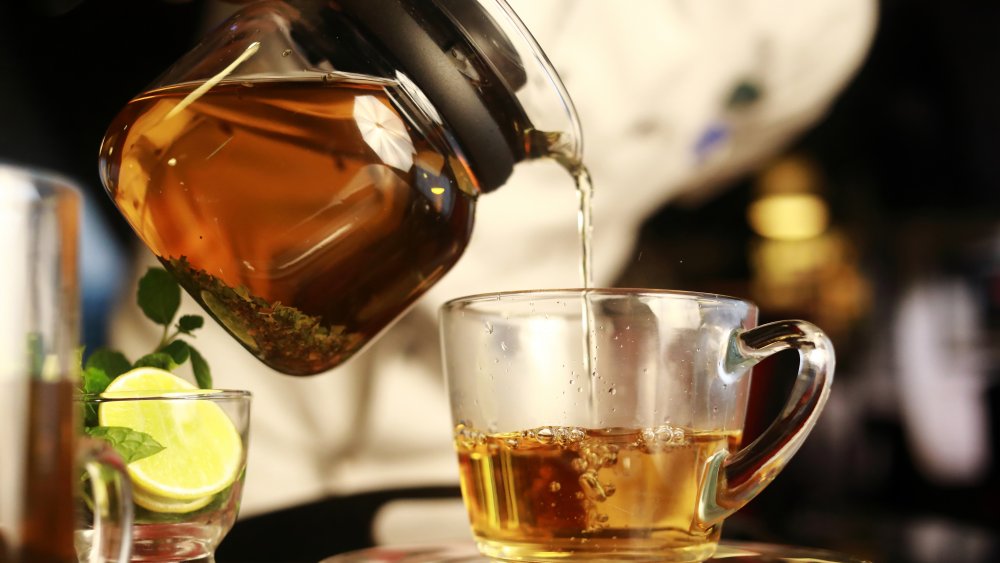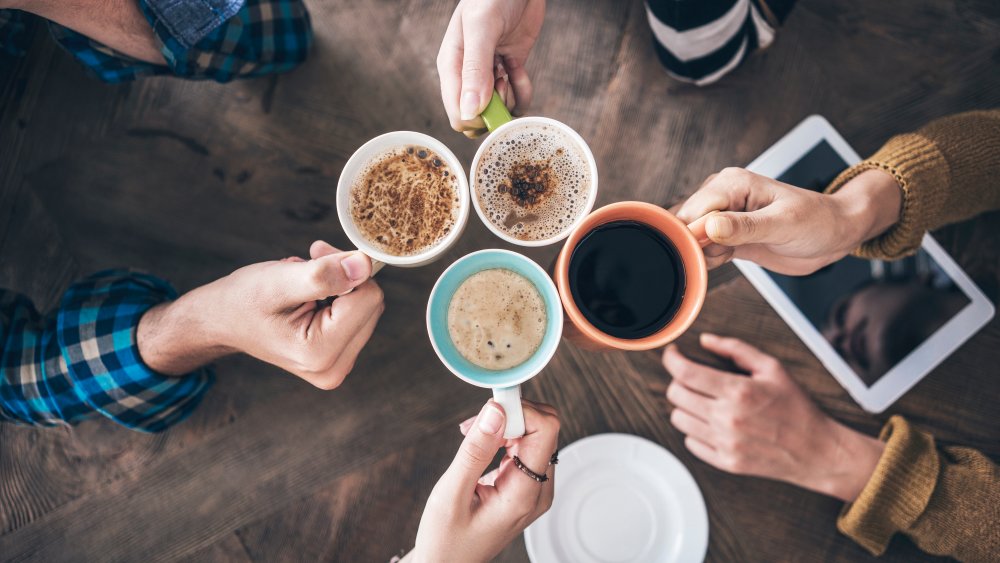Which Is A Better Breakfast Drink, Tea Or Coffee?
It's the age-old question: coffee or tea with your morning breakfast? Both drinks are hugely popular. Over 159 million people in the U.S. drink tea each day (via Your Best Digs) while approximately 150 million Americans consume coffee on a daily basis (via E-importz). Translation: we like our caffeine. It seems fair to say most coffee and tea drinkers need that jolt of energy caffeine provides to get us functioning and moving in the morning. Remove it from our diets and we go through wacky withdrawals that can leave us feeling downright cranky and tired (via Healthline). But which of these drinks is the healthier way to begin your morning ritual?
The U.S. Food and Drug Administration states that caffeine can be healthy to include in your diet but also recommends limiting your caffeine intake to 400 milligrams a day. Tea and coffee sit at different spots on the great caffeine spectrum. An 8-ounce cup of green or black tea can deliver 30 to 50 milligrams of caffeine while an 8-ounce cup of coffee packs almost double the amount, with anywhere from 80 to 100 milligrams (via FDA). So ounce for ounce, coffee has the potential to give you a little more zip in your morning step. But caffeine is not the only benefit or drawback of these two beverages.
The good, the bad, and the ugly benefits of drinking tea
The good news is that there have been plenty of studies looking at how tea and coffee affect our bodies. Aside from the energy boost that the caffeine content provides its fans, both brewed beverages contain antioxidants along with other ingredients that can help fight diseases and ward off health problems. Green tea in particular has long been touted for the benefits its antioxidants can contribute to our health. These benefits include boosting the immune system and lowering blood pressure (via WebMD). Its polyphenol content might even protect against Alzheimer's disease by impeding the development of plaques that damage the brain.
Adding this drink to your morning routine seems like a smart move, but there are tradeoffs. According to a 1983 study published by the American Journal of Clinical Nutrition, subjects who drank tea with a hamburger meal saw a 64 percent reduction in iron absorption while coffee drinkers saw a 39 percent reduction. Why do we care? Because we need iron in our bodies to fight off anemia and keep us energized (via Better Health). However, when you drink your tea or coffee appears to matter. Subjects in the 1983 study who drank coffee an hour before their burger pretty much eliminated the problem. A 2017 study from the same journal found that drinking tea an hour after a meal lessened its effect on iron absorption.
Spilling the tea on coffee benefits
Drinking coffee with your morning meal also has its benefits. Coffee is filled with important nutrients like riboflavin, magnesium, and potassium. It is also swimming in antioxidants, surpassing what we get from vegetables and fruits combined (via Healthline). According to WebMD, studies focusing on coffee consumption suggest it may help stave off and prevent a laundry list of illnesses that include Parkinson's disease, type 2 diabetes, liver disease, the re-occurrence of colon cancer, and heart problems.
Coffee at breakfast may also keep our waistline trim by kick-starting our metabolism in the morning. A nutritionist told the Express, "Coffee also contains Chlorogenic acid, which helps to slow down the absorption of carbohydrates as well as stimulating the hormone Epinephrine, which helps to break down fat." However, this effect weakens when you increase consumption. But coffee has another advantage. Several observational studies point to the possibility of coffee contributing to longevity. Who wouldn't want to add a couple of years to their life simply by drinking java? This assortment of benefits certainly suggests coffee is a better breakfast drink.
That said, game, set, and match should not be immediately conceded to coffee in its contest with tea. WebMD cautions that it's not a zero-sum game with these two beverages because they each have different effects on your body and can play different roles in your diet.


